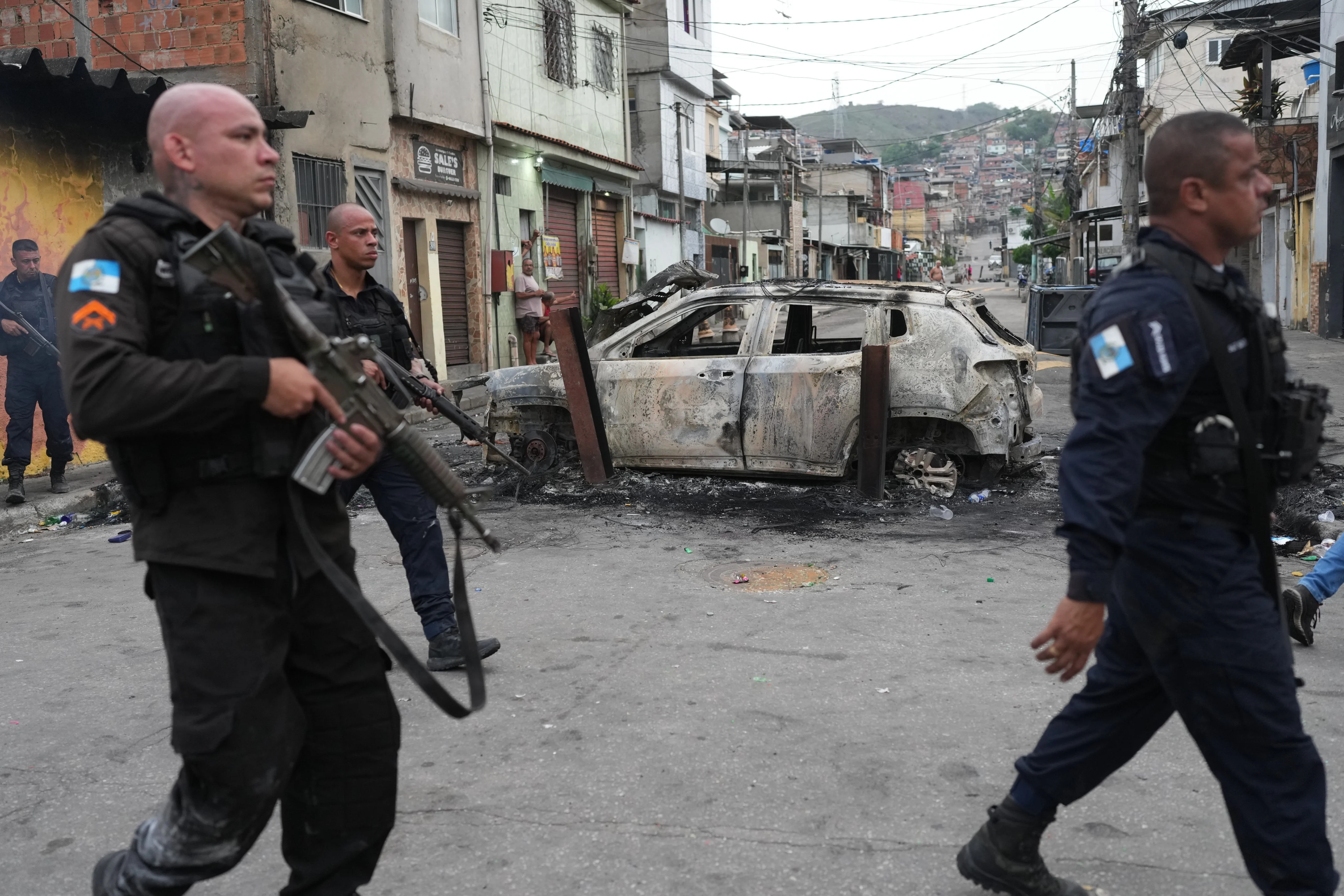Copyright scmp

Bodies piled up in poor neighbourhoods of Rio de Janeiro on Tuesday as police launched their biggest ever raids on the city’s drug traffickers, leaving at least 64 dead in warlike scenes. As many as 2,500 heavily armed officers, backed by armoured vehicles, helicopters and drones took part in the operation targeting Brazil’s main drug-trafficking gang in two poor neighbourhoods, or favelas, in northern Rio. Gunfire rang out in the area near Rio’s international airport, and smoke billowed from several fires on Tuesday afternoon, several hours after the raids started. Residents scrambled for cover and shops closed their doors amid police claims that the gangs were using drones to fight back. State Governor Claudio Castro described the operation in the Complexo da Penha and Complexo do Alemao favelas as the largest in the state’s history. The central government said the raids aimed to stop a gang called Comando Vermelho (Red Command) from expanding. Castro reported a death toll of 60 suspected gang members. A source from his administration said that four police officers were also killed. Police were seen in the Vila Cruzeiro neighbourhood of Penha district guarding about 20 young people huddled together and sitting on the pavement, heads bowed, barefoot, and shirtless. “This is the first time we’ve seen drones [from criminals] dropping bombs in the community,” said a Penha resident, speaking on condition of anonymity. “Everyone is terrified because there’s so much gunfire,” she added. Raids in the favelas are common but this was the deadliest one yet. Until now the highest death toll came in a raid in 2021 that left 28 people dead. The operation ground traffic on many of the seaside city’s main streets to a halt. “We’re left without buses, without anything, in this chaos and not knowing what to do,” said Regina Pinheiro, a 70-year-old retiree, who was trying to return home. Police also seized at least 42 rifles Tuesday along with a large quantity of drugs, Castro said. At least 81 people were arrested. The police mobilised two helicopters, 32 armoured vehicles, and 12 demolition vehicles used to destroy barricades erected by drug traffickers to prevent police from entering the narrow streets of the favelas. Major police operations are frequent in Rio, Brazil’s main tourist destination, particularly in the favelas, poor and densely populated neighbourhoods often ruled by criminal gangs. Castro posted a video on social media of what he described as a gang-controlled drone launching a projectile from the cloudy sky. “This is how the Rio police are treated by criminals: with bombs dropped by drones. This is the scale of the challenge we face. This is not ordinary crime, but narcoterrorism,” he said. Congressman Henrique Vieira, an evangelical pastor, roundly condemned the police operation. The state government “treats the favela as enemy territory, with a licence to shoot and kill”, he wrote on social media. Last year, around 700 people died during police operations in Rio, almost two a day. In 2020, Brazil’s Supreme Court imposed restrictions on counter-drug operations in the favelas, such as limiting the use of helicopters and operations in areas near schools or health centres. However, the same court lifted those restrictions this year. Experts and human rights organisations have criticised these types of operations by the security forces, deeming them ineffective against criminal organisations. The Human Rights Commission of the Rio State Legislative Assembly will demand “explanations of the circumstances of the action, which has once again transformed Rio’s favelas into a theatre of war and barbarism”, said congresswoman Dani Monteiro, president of the commission.



